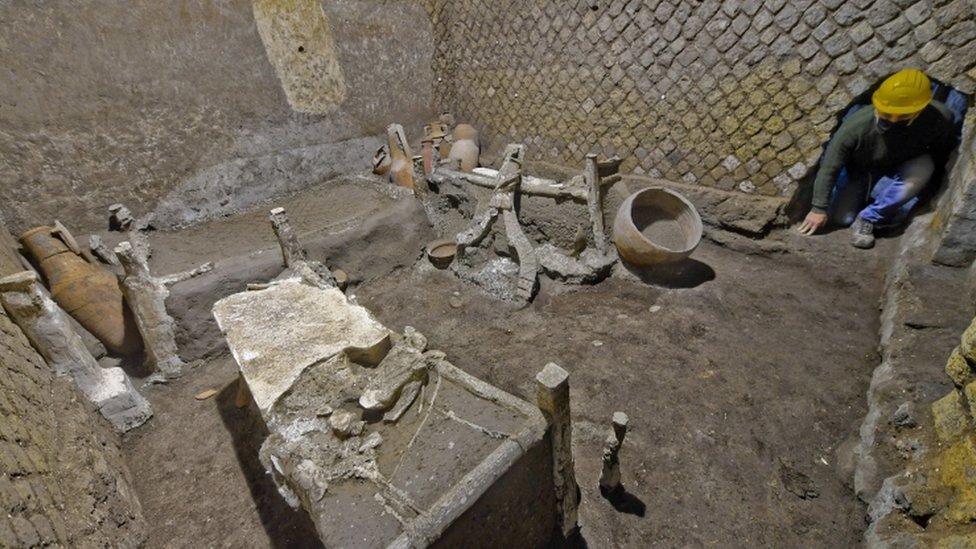Pompeii: Archaeologists find room that shows what it was like to be a slave
- Published
- comments

Archaeologists have discovered a room that was lived in by slaves in the ancient city of Pompeii, Italy.
In the room they found three wooden beds, a chamber pot and a wooden chest with metal and fabric objects in it.
The well preserved room, which only had a small upper window, was probably a room for a group of slaves or a small family who worked in the villa.
Pompeii was an ancient city that was destroyed by a volcanic eruption in 79AD.
Pompeii was an ancient city in Italy which because buried in ash and mud when the nearby volcano Mount Vesuvius erupted in 79AD, killing thousands of people.
This volcanic ash meant that many items and people were perfectly preserved for thousands of years, and archaeologists look at the area to learn how the ancient people lived.
The slave room was found at the ancient villa of Civita Giuliana, north of the walls of destroyed city of Pompeii.
The beds were made from wooden planks, with two of them about 1.7m long and the third just 1.4m which may have belonged to a young man or child.
On top of the beds the archaeologists discovered a wooden chest with metal and fabric object that might have been part of the horses' harnesses. There was also a chariot shaft resting on one of the beds too.
A chariot was a type of carriage which used horses to pull people along.
Archaeologists are excited by the discovery as it gives clues into how people, who were not usually written about in historical texts, lived in this ancient world.
Pompeii's archaeological park director, Gabriel Zuchtriegel, said: "It is certainly one of the most exciting discoveries during my life as an archaeologist, even without the presence of great treasures, the true treasure here is the human experience."
- Published24 December 2020
- Published24 January 2020
- Published22 June 2020
